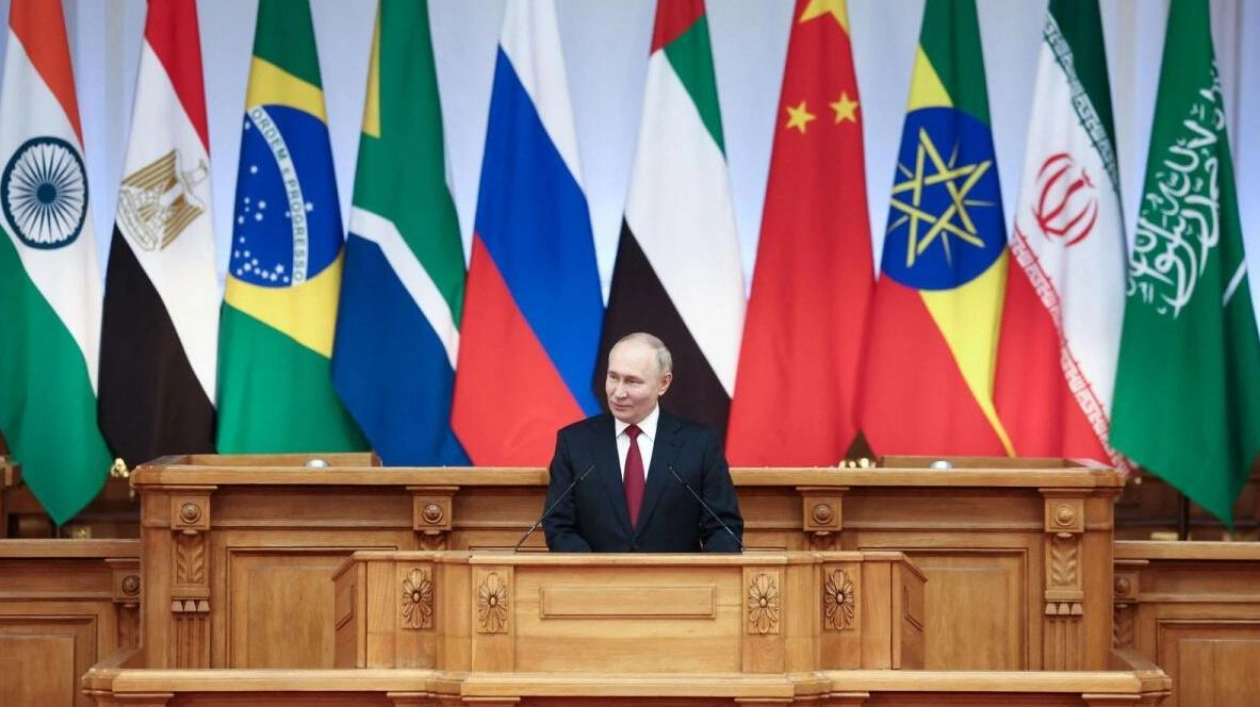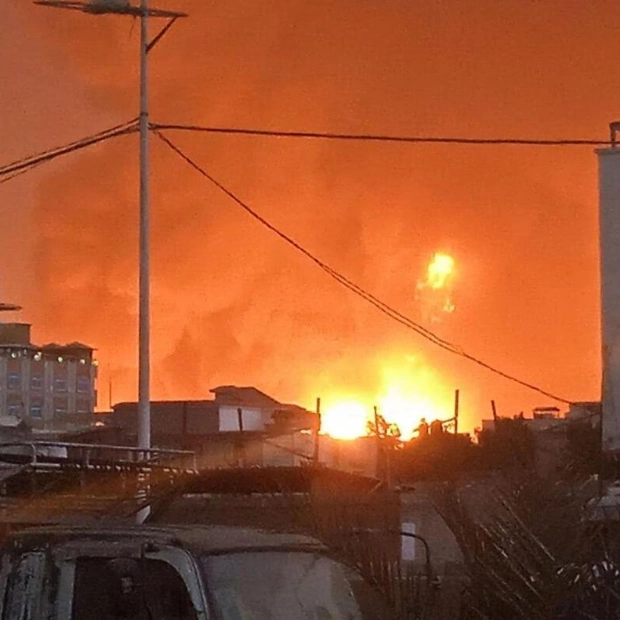Russian President Vladimir Putin addressed the BRICS Parliamentary Forum in Saint Petersburg earlier this year. — Reuters file
Russia's proposal for BRICS partners to develop an alternative to the International Monetary Fund (IMF) marks a significant step by the emerging alliance to initiate a new global order that could supplant the 80-year-old Bretton Woods financial framework. This call from Russia, made prior to the BRICS leaders' summit in Russia from October 22 to 24, coincides with the growing momentum of the group's de-dollarization efforts. Originally consisting of Brazil, Russia, India, and China, BRICS has since expanded to include the UAE, South Africa, Egypt, Ethiopia, Iran, and Saudi Arabia. The group is actively working on a new currency—possibly backed by gold—aimed at reducing its reliance on the US dollar. The 'weaponization' of the US dollar by the US and its allies against adversaries has posed a threat to the greenback's dominance. Analysts suggest that using the world's leading reserve currency as a financial weapon has hastened the shift by numerous countries to diversify their investments into alternative currencies. Despite being the top reserve currency held by central banks, the dollar has been gradually losing ground to a mix of other reserve currencies as central banks diversify their holdings from dollar-denominated assets to those denominated in other currencies, and also increase their gold reserves. Over the past decade, the dollar's share has declined by approximately 8.0 percentage points, from 66% in 2015 to 58.2% in 2024. If this trend continues, the dollar's share could dip below 50% within the next decade.
At a recent meeting of BRICS finance and central bank officials, Russian Finance Minister Anton Siluanov, who chaired the meeting, emphasized that Western countries dominate the global financial system, and that the BRICS group, which represents 37% of the global economy, needs to establish an alternative. 'The IMF and the World Bank are not fulfilling their roles. They are not operating in the interests of BRICS countries,' Siluanov stated. 'It is essential to create new conditions or even new institutions, similar to the Bretton Woods institutions, but within the framework of our community, within the framework of BRICS,' he added. The timing of Russia's call is also noteworthy, as a standalone payment system known as the 'BRICS Bridge' is gaining traction. Central banks and finance ministries of all BRICS nations are deliberating the launch of such a payments platform that would bypass the dollar. Economists and analysts believe that the establishment of this independent financial payment platform, if successfully implemented, would have a profound global impact. They anticipate that it will either be approved at the upcoming summit or at least lead to a decision on its finalization format—indicating that this initiative is no longer just a concept but is progressing towards practical implementation.
Analysts contend that given the significant geopolitical and geo-economic shifts since 1944, it is inevitable that a new global order must emerge to redefine the character of the Bretton Woods Institutions, including leadership nationality, loan conditionality, the nature of bailouts, and the 'voice' and voting power of Third World countries. They advocate for a more balanced, 'polyarchic' division of international financial power and responsibility, driven by the large emerging-market surpluses and a developmental ideology. Ahmed Ali Al Sayegh, Minister of State, and Saeed Mubarak Al Hajeri, Assistant Minister for Economic and Trade Affairs at the Ministry of Foreign Affairs and the UAE BRICS Sherpa, participated in the BRICS Foreign Ministers' Meeting in New York on the sidelines of the 79th United Nations General Assembly (UNGA), ahead of the upcoming BRICS Summit. The UAE's involvement underscored its commitment to fostering multilateral cooperation, highlighting that collective international action is vital in addressing current challenges and paving the way for a more prosperous future, according to Al Sayegh. The only financial institution that BRICS countries have established so far is the New Development Bank, created in 2015 to fund infrastructure and sustainable development projects in member countries and other emerging economies.






